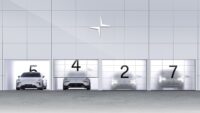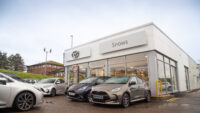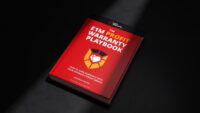The government is refusing to ‘jump to conclusions’ amid concerns that the recent cyber attack on JLR may have been state-sponsored.
Speaking in the House of Commons yesterday (Tues), business minister Sir Chris Bryant said he was ‘unable to confirm or deny’ who was behind the attack, which has ground the carmaker to a halt.
The Labour MP was being grilled by Tory shadow minister Dame Harriett Baldwin, who asked the government to ‘rule out this being a state-sponsored attack’.
In response, 63-year-old replied: ‘Can I say who’s responsible? No, I’m afraid I can’t.’
‘I note what is in the public domain, I have no idea whether that is accurate or not, and I don’t want to impede the investigation.
‘[Dame Harriett] asked, is it state-sponsored? Again, I don’t want to jump to conclusions. I can’t, I’m afraid, I can neither confirm nor deny anything.
‘And she asked, furthermore, whether … this case was linked with that of M&S. Again, I can’t answer that question as fulsomely as I would like to be able to, simply because I don’t know, and I don’t think anybody has come to any secure decisions on that.’
Car Dealer reported last Monday that JLR’s UK dealers had been left unable to register cars on September new plate day as a result of ‘global IT issues’.
The following day, the firm confirmed it had fallen victim to a cyber attack, which is now alleged to have been carried out by the same group who previously targeted Marks and Spencer.
The BBC reports that three English language speaking hacking groups known as Scattered Spider, Lapsus$ and ShinyHunters, have claimed responsibility.
The broadcaster says that the gang bragged about the hack on instant messaging platform Telegram and shared screenshots purporting to be from the car manufacturer’s internal IT system.
The group is said to be trying to extort money from the car manufacturer but refused to confirm if they had managed to steal private data from JLR, in private messages with the BBC.
There are currently concerns about whether any personal data has been compromised, after JLR reported itself to the Information Commissioner’s Office (ICO).
Bryant also took questions from Labour’s Derek Twigg, the MP for Widnes and Halewood, home to a JLR production plant.
The MP tabled an urgent question on the issue and warned ‘there could be an ongoing and even more serious effect on our economy’.
In his response, Bryant said: ‘We simply cannot afford any degree of complacency in this, there are major criminals operating in this space, as well as some malicious state actors, and some 40% of companies in the UK last year reported that they had faced some kind of cyber attack.
‘So it is a very important issue that we take seriously.’
He also pledged that the government would provide ‘every possible support’ to JLR and other companies in its supply chain.
Meanwhile Tory former defence secretary Sir Gavin Williamson, who is MP for Stone, Great Wyrley and Penkridge, said: ‘The attack on JLR is not the first of its kind, and it certainly won’t be the last of its kind, and you will see increasingly state actors using criminal gangs, whether originating from Russia, North Korea, Iran, using this as a way of getting hard cash into those countries.
‘What more can the minister and the state do to really support our businesses with the robust type of defence that’s required because they are fighting states, and they need to have this state right behind them?’
Byrant said the government ‘needs to keep our eyes very wide open’ to ‘the fact that there are undoubtedly foreign state actors who want to interfere in our businesses’.
The minister also warned firms and organisations over the threat posed by ransomware attacks where criminals snatch data and demand cash in exchange for its release.
He added: ‘Paying the criminals doesn’t get you out of the hole. They’re not to be trusted, and people should be extremely cautious.
‘We do not recommend in any circumstances, people paying ransomware. It doesn’t solve the problem, and what it actually does is it adds to the business model of these criminals, and it’s the criminals we want to see behind bars.’

































